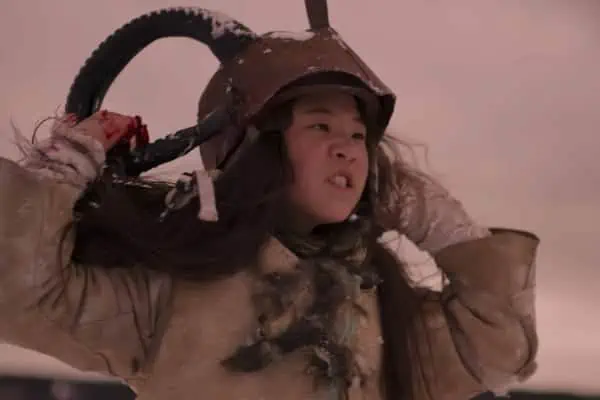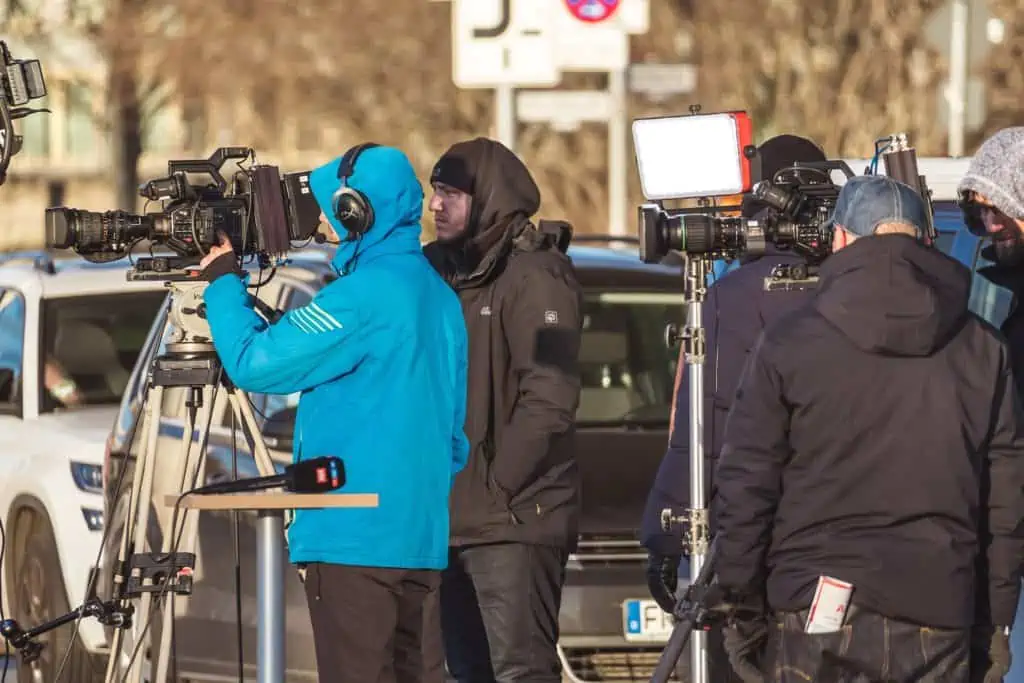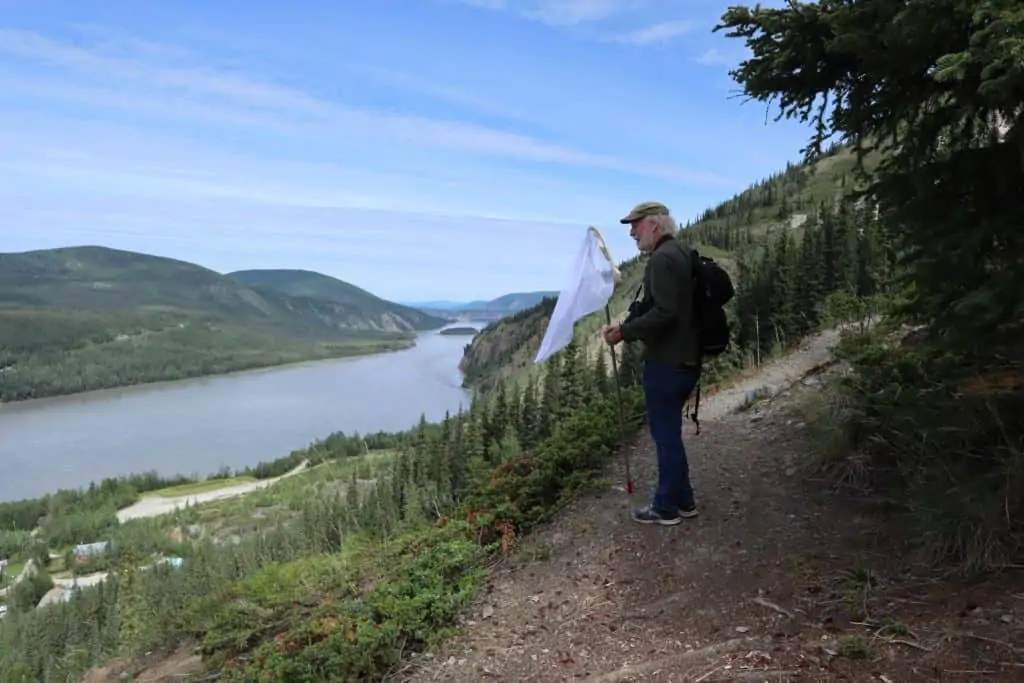A film director is pivotal in creating the environment and tone for people to work in, and in Lulu Keating’s recent short films the setting has involved some challenges.
Cameras and actors worked in sub-zero temperatures for Her Man Plan (2010), for example. Many of the scenes were filmed on the frozen Yukon River and in West Dawson, away from power sources and controlled lighting.
Her Man Plan, shown last weekend at the Vancouver Women in Film Festival, is a lighthearted short story about a young woman who heads out on her kick-sled to find a man before winter ends.
It took the audience choice award at Dawson City’s 48 Hour Film Competition last year, and then Keating “polished it up” before circulating it.
“At this point the only thing that I have indulged in, that isn’t really necessary, is a couple of extra seconds where Stephanie’s harnessing up her two dogs to go kick-sledding through the woods,” she says.
“But I figure any audience that’s not northern is never going to have seen that process, and they’re going to wonder, ‘How did she get those dogs harnessed up?’ And so it’s two quick shots, just a couple of seconds.”
It may seem curious that a film director would live in Dawson City, a town without a movie theatre.
But Keating keeps more than busy. Her current projects are varied. One is the script and development for a one-hour documentary on J.J. Van Bibber, a Tr’ondëk Hwëch’in elder who acquired his first camera in 1933 at age 13 and took photos all over the Yukon for 70 years.
Another film in development – the stage where the script is written and the hunt is on for a producer and funding – is Based on a True Fantasy.
It’s a feature-length comedy-drama set near the end of the free love era, following a young woman as she rejects her Catholic faith and tangles with lovers in what becomes an unorthodox road to becoming a “mother without a guidebook.”
Its saucy tagline is already in place: “When you’re screwing like crazy, it’s hard to tell how screwed you are.”
Much of it is drawn from Keating’s own sex life in the ’70s, though she says the script became less autobiographical from draft to draft.
And yes, she changed characters’ names and cleared the concept with ex-boyfriends before she completed the writing.
It’s a good thing she did, because the script won the 2010 Women in the Director’s Chair feature film award, from the Creative Women’s Workshop Association. The $100,000 award is a combination of cash, in-kind equipment rental and post-production film services.
One of Keating’s trademark approaches to film is to blend live action and animation.
Her quirky family portrait The Moody Brood (1999) is a 40-minute documentary that mixes interview clips from each of her nine siblings (and herself) with animated photographs, beads, toy Easter chicks, paper cutouts and more, like a high-energy jazz concert.
“It’s always been a touchstone to play with images and be fanciful and playful,” she says.
For True Fantasy, when funding is secured, Keating has her eye on working with animator Jay White, who still has one foot planted in the Yukon though he now lives in BC.
Hailing from Nova Scotia, Keating was involved with theatre in her teens and initially went to art school in Vancouver for sculpture. She fell in love with making films instead, tried out film school in Toronto, and decided to master the craft by making films directly.
Keating chose Halifax as the hothouse for that learning, and was a major figure in the Atlantic film community for 20 years, chairing boards and contributing to the development of the industry.
In that time she also wrote and directed her debut feature film, The Midday Sun(1989), which was shot in Zimbabwe and based on her experiences volunteering in Zaire when she was 18.
After a stint working in television in Vancouver, Keating moved to Dawson City in 2004 to work for two seasons as director of the Dawson City International Short Film Festival.
Now back to working as an independent artist, Keating contributes to the enthusiasm of Dawson’s fledgling film community, both informally and by mentoring.
She maintains her momentum, and her directing and writing skills, by making short films.
“It takes confidence to keep going and also to overcome all the inevitable obstacles in filmmaking,” she says. “It’s something that you have to have a thick skin and just be really persistent to do it.”
Her Man Plan can be seen as part of the One Hundred show at the Dänojà Zho Cultural Centre until March 15.




